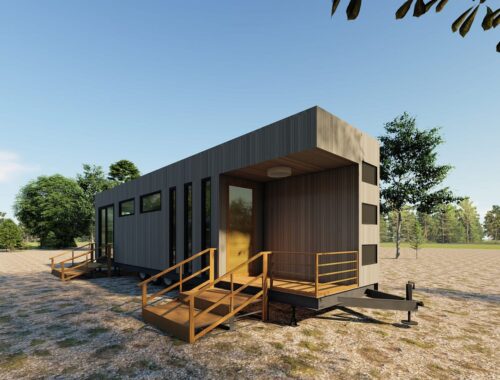Trump’s man in Brussels at center of impeachment inquiry
In Ukraine, it’s always about gas.
U.S. Ambassador to the EU Gordon Sondland’s role at the center of the impeachment scandal can be traced to one of Donald Trump’s obsessions — not with Joe Biden and the Democrats, but with Germany’s reliance on Russian gas and Berlin’s support for the Nord Stream 2 pipeline being built by Gazprom, the Kremlin-controlled energy behemoth.
It was Trump’s fury at Germany, which he voiced directly to Chancellor Angela Merkel before a NATO summit in July 2018, and his fixation on increasing sales of U.S. liquified natural gas that led to Sondland being deployed as one of three U.S. officials responsible for managing relations with Ukraine, which fiercely opposes the Nord Stream 2 project.
According to Sondland, who like Trump made a fortune in the hotel business, the trio included himself, the U.S. special representative for the Ukraine conflict, Kurt Volker, and U.S. Secretary of Energy Rick Perry, and they called themselves the “three amigos.”
Volker, who abruptly resigned last week from his voluntary post as special representative, met on Thursday for nine hours with congressional investigators conducting the impeachment inquiry. Perry, who is also under scrutiny by Congress, has signaled that he may resign as soon as next month.
Sondland, by contrast, has given no sign that he is planning to give up his job as Trump’s envoy to the European Union, despite text messages provided to Congress by Volker that appear to show Sondland confirming allegations that Trump pressured Ukrainian President Volodymyr Zelenskiy to pursue an investigation of Biden and his son Hunter.
On August 9, in a text message regarding a potential visit to the White House by Zelenskiy, Sondland had texted Volker saying, “I think potus [the president of the United States] really wants the deliverable.”
According to other messages, that “deliverable” appears to have been a draft statement, ultimately never issued by the Ukrainian president, in which he was supposed to announce an investigation of Hunter Biden’s connection to a Ukrainian gas company, as well as into allegations of Ukrainian connections to interference in the 2016 U.S. election.
However, in the text exchanges, Sondland insisted that Trump was not withholding security assistance for help with a political campaign.
“The President has been crystal clear: no quid pro quo’s of any kind. The President is trying to evaluate whether Ukraine is truly going to adopt the transparency and reforms that President Zelensky promised during his campaign,” Sondland wrote in response to Bill Taylor, the acting U.S. ambassador in Kyiv who suggested withholding security aid was “crazy.”
“I suggest we stop the back and forth by text,” Sondland added.
Sondland did not respond to a text message from POLITICO requesting comment about his role. An embassy spokeswoman has said the U.S. representation in Brussels is cooperating fully with Congressional investigators. Speaking privately to associates in Brussels, Sondland has dismissed the impeachment inquiry as “bullshit.”
While Sondland’s conduct in Brussels, Kyiv and elsewhere will face intense scrutiny on Capitol Hill in coming weeks, there is little doubt that his central role stemmed in part from his work on the gas issue, and in part from his own keen desire to be at the center of geopolitical action.
Sondland, who was a longtime donor and bundler for the Republican Party and its presidential candidates before being nominated by Trump, has often said that he turned down other diplomatic jobs in favor of the EU post because he wanted hands-on responsibility for diplomacy and policymaking, not just a ceremonial job hosting and attending dinners and cocktail parties.
Courting the president and ‘Javanka’
Since his arrival in Brussels in the summer of 2018, Sondland has used his prominent platform in the EU capital and his involvement in major issues such as Trump’s threatened trade war with Europe, to build a closer relationship to the White House than most diplomats, particularly by cultivating ties to the president’s son-in-law and senior adviser, Jared Kushner.
In June, Kushner attended a dinner that Sondland organized as part of a U.S. Independence Day celebration — oddly held one month early — that was also attended by Zelenskiy and Perry. As part of that celebration, Sondland arranged a standup comedy performance in Brussels by Jay Leno, the former host of “The Tonight Show.”
Thanks to ??@SecretaryPerry, @JaredKushner, ?? @EP_President Tajani, HRVP @FedericaMog, Commissioner @MAC_europa, ?? @prezydentpl Duda, ?? Prime Minister @VDancila_PM & Vice Prime Minister @AnaBirchall, ?? President @ZelenskyyUa, and ?? Prime Minister @BakhtadzeMamuka and others! pic.twitter.com/HNynvyo7Lz
— U.S. Ambassador to the EU (@USAmbEU) June 5, 2019
A photo of Zelenskiy, who is also a professional comedian, and Leno, was part of a montage that Sondland posted on Twitter about the event. (Leno’s performance fell flat largely because the audience of EU officials and diplomats didn’t quite grasp jokes written with an American sensibility.)
But it is clear that Sondland’s outreach to the Trump family has met with success. Last month, while in New York for the United Nations General Assembly week, Sondland arranged a private dinner at the home of Kushner and first daughter Ivanka Trump, for European Council President-elect Charles Michel, and the EU’s incoming foreign affairs chief, Josep Borrell.
The dinner was part of an effort by Sondland to “reset” U.S. relations with the EU, which have soured since Trump took office.
EU officials largely blame Trump for the strained transatlantic relationship, noting that it was the U.S. leader who praised Brexit, pulled out of the Paris climate accord, withdrew from the Iran nuclear deal, and ignited a trade conflict by unilaterally slapping tariffs on EU steel and aluminum products.
Sondland, meanwhile, has cast himself very much as Trump’s man in Brussels, and has not shied away from slapping at the Europeans, at one point blasting the European Commission as “out of touch with reality” and accusing EU officials of stalling trade negotiations.
European Commission President Jean-Claude Juncker helped negotiate a brief truce in the trade fight during a visit to see Trump at the White House in July 2018. Trump has shown grudging respect for Juncker, calling him a “brutal killer.”
A key factor in the trade truce was Juncker’s promise that EU countries would buy more liquified natural gas from the U.S. — again underscoring Trump’s personal attachment to the energy issue.
Los three amigos
Sondland, Perry and Volker were three members of a five-person U.S. delegation that attended Zelenskiy’s inauguration on May 20 in Kyiv. Perry replaced Vice President Mike Pence as head of the delegation.
Some weeks earlier, Sondland met in Brussels with Perry and a top adviser to Zelenskiy, Oleksandr Danyluk, to discuss gas and other energy issues. Zelenskiy would later name Danyluk as head of Ukraine’s National Security and Defense Council.
Sondland and Volker were first in Ukraine together last February, on a trip to the port city of Odesa, where a U.S. Navy destroyer, the U.S.S. Donald Cook, was docked on a symbolic visit. The two Americans were part of a delegation that also included a senior European Commission official, Jean-Christophe Belliard, and was intended to show support for Ukraine in its ongoing conflict with Russia.
But it is another visit to the Ukrainian capital, on July 26, with Volker, that is now the central focus of the impeachment inquiry in Congress. The visit took place the day after a phone call between Trump and Zelenskiy, in which the American president asked for a “favor” and urged his Ukrainian counterpart to work with Trump’s personal lawyer, Rudy Giuliani, and the U.S. attorney general, William Barr, in investigating the Bidens and any Ukraine connection to the 2016 election meddling. (Allegations of such a connection have been widely debunked, but Trump has never let the issue drop.)
A televised interview that Sondland gave during that trip could help support his contention that the proposed White House visit for Zelenskiy was not held up as part of some diplomatic extortion scheme, but simply because of busy schedules.
Appearing on the English service of UA-TV, a government-financed channel, Sondland was asked when the White House visit would take place.
“Well, the date is only subject to scheduling,” he said. “Both President Zelenskiy’s calendar and President Trump’s calendar, with events going on around the globe — G7 coming up, the commemoration of World War II in Warsaw — there’s a lot of travel coming up for both presidents. So we’re trying to find a mutually convenient date in coming weeks. We don’t want this to take months for both of them to meet at the White House.”
Before the call, another call
At the same time, the interview confirms that Sondland had an extremely central role. He told the interviewer that he had spoken with Trump just before the crucial call with Zelenskiy.
“I actually spoke with President Trump just a few minutes before he placed the call,” he said. “And not only did the president call to congratulate President Zelenskiy, but also to begin the collaboration of charting the pathway forward with the U.S.’s support of Ukraine and a White House [trip] that is upcoming for President Zelenskiy.”
Sondland was also asked to explain his visits to Ukraine.
“We have what are called the three amigos,” he said. “And the three amigos are Secretary Perry, again Ambassador Volker and myself. And we have been tasked with sort of overseeing the Ukraine-U.S. relationship between our contacts at the highest levels of the U.S. government and now the highest levels of the Ukrainian government.”
Later in the interview, he acknowledged that his diplomatic duties were stretching beyond the EU.
“President Trump has not only honored me with the job of being the U.S. ambassador to the EU,” Sondland said, “but he also given me other special assignments including Ukraine.”
You May Also Like

コンテナハウスの魅力と活用方法
March 14, 2025
Dino Game: A Journey Through Prehistoric Challenges
March 21, 2025